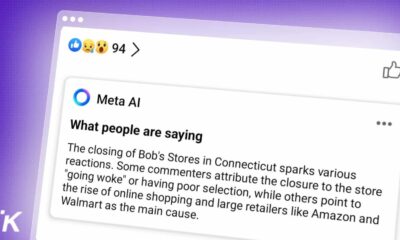120 million Facebook accounts were compromised by sketchy browser extensions
It looks like the issue has been taken care of, for now.

Just a heads up, if you buy something through our links, we may get a small share of the sale. It’s one of the ways we keep the lights on here. Click here for more.
On Friday, the BBC reported that hackers have information on over 120 million Facebook accounts. To help confirm the legitimacy of the claim, the hackers released information on a large number of the hacked accounts that contained private messages.
Apparently, this first came to light back in September when a post on an English-language message board popped up stating that they sold “personal information of Facebook users” and that their database “includes 120 million accounts.” The hackers were trying to sell the accounts for 10 cents a piece.
It seems to be somewhat legitimate, as the BBC Russian Service contacted five Russian Facebook users who confirmed that the data in the posts was theirs.
More about the apparent hack
According to the BBC, many of the supposedly hacked accounts are from the Ukraine and Russa, but accounts from the US, UK, Brazi, and elsewhere are present, as well. After contacting the hacker as a buyer, the BBC states that the contact said these accounts were not related to the Cambridge Analytica scandal or the big breach from September.
Facebook has stated that no such breach has occurred, and experts have concluded that the information was obtained from malicious browser extensions. “We have contacted browser-makers to ensure that known malicious extensions are no longer available to download in their stores,” said Facebook executive Guy Rosen. The website that was sharing the leaked information has also been taken down.
Digital Shadows, a cybersecurity company, looked at the data and told the BBC that yes, private messages were contained in the data of more than 81,000 profiles of the over 200,000 that were leaked to prove authenticity. Other information found in the remainder of the profiles could just be skimmed data that is set to “Public” from Facebook accounts
Now what?
It looks like everything is in the clear now. Facebook has worked with browsers to remove the extensions (which they have not named) that were skimming data from users’ Facebook accounts. Third party security companies say some of the blame falls on the browsers, as these issues should have been caught during the vetting process.
Regardless, Facebook continues to prove that social media is never safe and that the information you share can be obtained from someone with ill intention.
What do you think? Are you still using Facebook? Let us know in the comments.
Editors’ Recommendations:
- Google kept a massive data breach under wraps and now it’s all coming to light
- After paying $100k to hackers to keep quiet, Uber’s 2016 data breach is going to cost it millions
- The new T2 Security Chip from Apple means hackers will have a harder time eavesdropping































